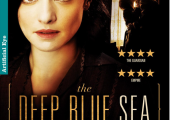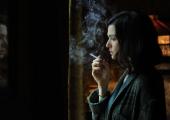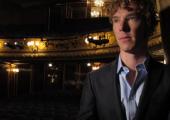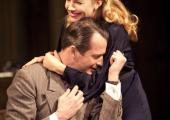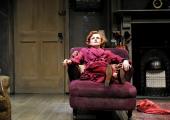A Tale of Two Cities, King's Head Theatre

An uneven staging of Terence Rattigan and John Gielgud's Dickensian adaptation
The opening of Charles Dickens's novel A Tale of Two Cities is among the most famous ever written: "It was the best of times, it was the worst of times, it was the age of wisdom, it was the age of foolishness…". If the publicity for this stage adaptation is to be believed, it is a scarcely less exalted addition to the mythology surrounding this novel.


